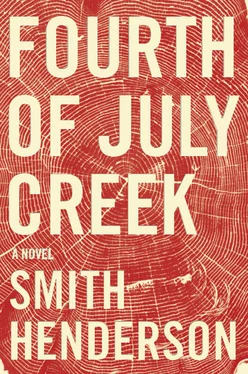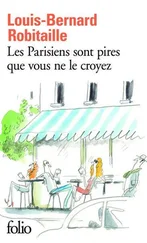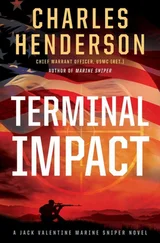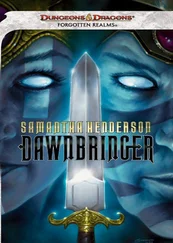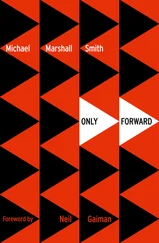Up a rise, the Sweet Grass Grain silo peeked over at them. Tucked in hills the color of toast, Shelby spilled up in intervals. They descended into the town proper and passed a church where parishioners milled and children ran orbits. Another and another church. Mighty silos, a water tower, and they climbed another hill to see the rail yard.
Pete checked a piece of paper on the dash, turned at the next light, and headed north, scanning the right side of the road for the relevant mailbox. It was a trailer, once red, sunscalded pink. He stopped at the gate and got out, opened it, drove through, got out, and closed it.
In the large outbuilding Cecil’s uncle knelt next to a snowmobile. A dog on a chain strained and leapt at the edge of the stamped earth circle around the stake to which it was leashed. Silently gnashing the air ten feet from where they parked. Pete caught himself rubbing his bandage. The animal’s vocal cords were cut. Docked like its tail.
“Howdy,” Pete called to the outbuilding, fetching his jacket from the backseat. The man looked up, stood, and wiped his hands on his jeans as he strode out to meet him. His hair was shaved into a flattop and he had the look of large, hale men who shoot straight and mean well, but probably nurse a good many resentments. They shook.
“I’m Pete. From DFS. Spoke to your wife.”
“Elliot,” he said, peering over Pete’s shoulder at Cecil still in the car. “What’s wrong with him?”
“Nervous, I suppose.”
“Is he gonna get out?”
“Let’s give him a minute.”
“Because he don’t have to be here. Favor to his mother is all this is. He don’t like it, he can shove off.”
“He’ll stay.”
They started for the house. There was an add-on covered in tar paper at the back. The fence terminated in a stack of posts some ways off and added to the air of incompletion about the place. A thin woman emerged from behind the screen door. She leaned on the porch railing, shielding her eyes from the sun, and peered toward the car trying to get a look at Cecil.
“There’s the wife,” Elliot said gruffly.
They went over together. She was a hard thing, taut in her arms and in her face. She was cross, at Elliot or the situation, maybe perpetually. She looked older than her husband. Wind-chapped lips. She nodded toward the car.
“What’s with him?”
“A little cold feet. He’ll come around.”
“This is a favor to his mother. He don’t like it here, he can shove off,” she said, just like her husband.
“He’ll warm up to it,” Pete said. “He’s at that age. Wants to get out on his own. But most of all, he needs stability.”
She looked meaningfully at Elliot. She was about to say something — probably about the boy’s mother — but the car door opened and Cecil climbed out. The dog lunged against its chain, whining airily, as the boy walked just at the edge of the animal’s limit up the drive. Pete called to him, but Cecil ignored him and went into the outbuilding.
“Let me talk to him,” Pete said.
“Hold on, mister,” the woman said. “You got our check?”
Pete was already on the steps, and he turned to face her.
“You know, I didn’t get your name,” Pete said pleasantly.
“We was promised two-fifty a month for him.”
“The stipend. Yes, they will send a check just as soon as the paperwork is processed and everything. No more than a week or two.”
“What are we supposed to do now?”
“How’s that?”
“How is what?”
“I mean, what are you asking.”
She shot Elliot a look, and he bowed his head. “We’re flat broke is what I’m asking. That kid don’t live on grass is what I’m asking. Elliot ain’t had no shifts since he got out of the National Guard is what I’m asking.”
“And I got until Christmas to decide to re-up or not.”
“He might have to re-up,” she said with a practiced outrage.
“I’ll contact the folks in Helena just as soon as I get back to Tenmile,” Pete said.
She crossed her arms like she didn’t believe any of it.
“Maybe they can put a rush on that check.”
“Maybe they can put a rush on it,” she said to Elliot, and then to Pete, “You ain’t hearing me. We ain’t made of money. Of any money.”
Pete looked over at the garage for some sign of Cecil.
“I oughta go get him,” he said.
“And when you get him, you can put him back in that car,” the woman said.
Pete looked from Elliot to his wife. She turned to go back into the house. Pete raced through the things to say, resisted the urge to ask why the hell they had him come all the way out with Cecil if they were going to commence with this horse-trading bullshit.
He felt his pockets.
“Tell you what,” he said. “I got about fifty bucks in petty cash left from taking him out here. What say I give you that, put a rush on the check — pay my own way back to Tenmile, mind you — and you all write me a check for the fifty, which I’ll cash once you get your check.”
“We don’t use a checkbook,” she said.
“Not for bills or anything?”
“No.”
“Maybe,” Elliot said, “this ain’t such a good—”
“Look,” Pete said. “Fifty is all I got. You can have it.”
The woman shook her head. She and Pete both wiped their hair out of their eyes. Even this seemed to annoy her — that it was windy, that Pete had long hair.
“That kid’s as weird as a three-dollar bill. A couple Christmases ago he’s riding his cousin’s tricycle like he was five. Carrying on like a retard. Wouldn’t give it back when he was told to, neither.”
The door slammed behind her, and the breeze through the cheatgrass filled the silence, and there wasn’t anything else to blow over that would make a sound, not a tree or clothes on the line or anything.
“Maybe this deal ain’t such a good idea,” Elliot said, looking off across the yard. The dog turned in concentrated circles before he set in the dirt. Pete reached into his wallet and pulled out the cash.
“I got forty-eight here,” he said, pressing the money into the man’s hand and folding closed his palm. Elliot took a pack from his front shirt pocket and shook out a smoke and offered it to Pete. Pete took it and Elliot took one for himself and they each lit them and smoked together without talking.
“I’m a see what he’s up to,” Pete said.
He jogged across the yard, past the lunging silent dog. He felt light-headed from the cigarette, and when he got to the doorway of the huge outbuilding he was panting. A rusted combine filled the main area. A snowmobile was off to the side. Cecil sat on a big round of pine. His hand fell gently from his face. He held a filthy red rag in his hand, and a bright red plastic gas can sat hard by. The boy’s huge dumb grin. Eyelids half closed like broken window shades.
Pete stepped into the outbuilding and the aluminum walls all around ticked in the wind like a cooling engine. He spat at a copper pipe, and it toned back at him for a long moment. The boy’s eyes lolled.
“You would love it at the treatment facility,” Pete said.
Cecil licked his lips as he turned toward this voice from the ether.
“They knock you out for days in that place. Just have to kick or hit or bite somebody. Whip out your dick. I know it. I seen it. And when you come to all groggy and fucked-up, they just wait and see if you do it again. And you will. They all do.”
Pete peeked out the doorway to see that Elliot still smoked on the porch of the house. From inside his pocket, Pete removed his tiny flask. Finished and replaced it and approached the boy.
“You know the worst part about treatment facilities, Cecil? The freedom. It’s what they call a paradox, Cecil. No longer being afraid of ending up there is what makes you free to do anything. And all the anythings you can learn. How to fight with a toothbrush or a spoon. All the drugs there are to take. How to molest other kids. You won’t believe the appetites you got inside.”
Читать дальше
